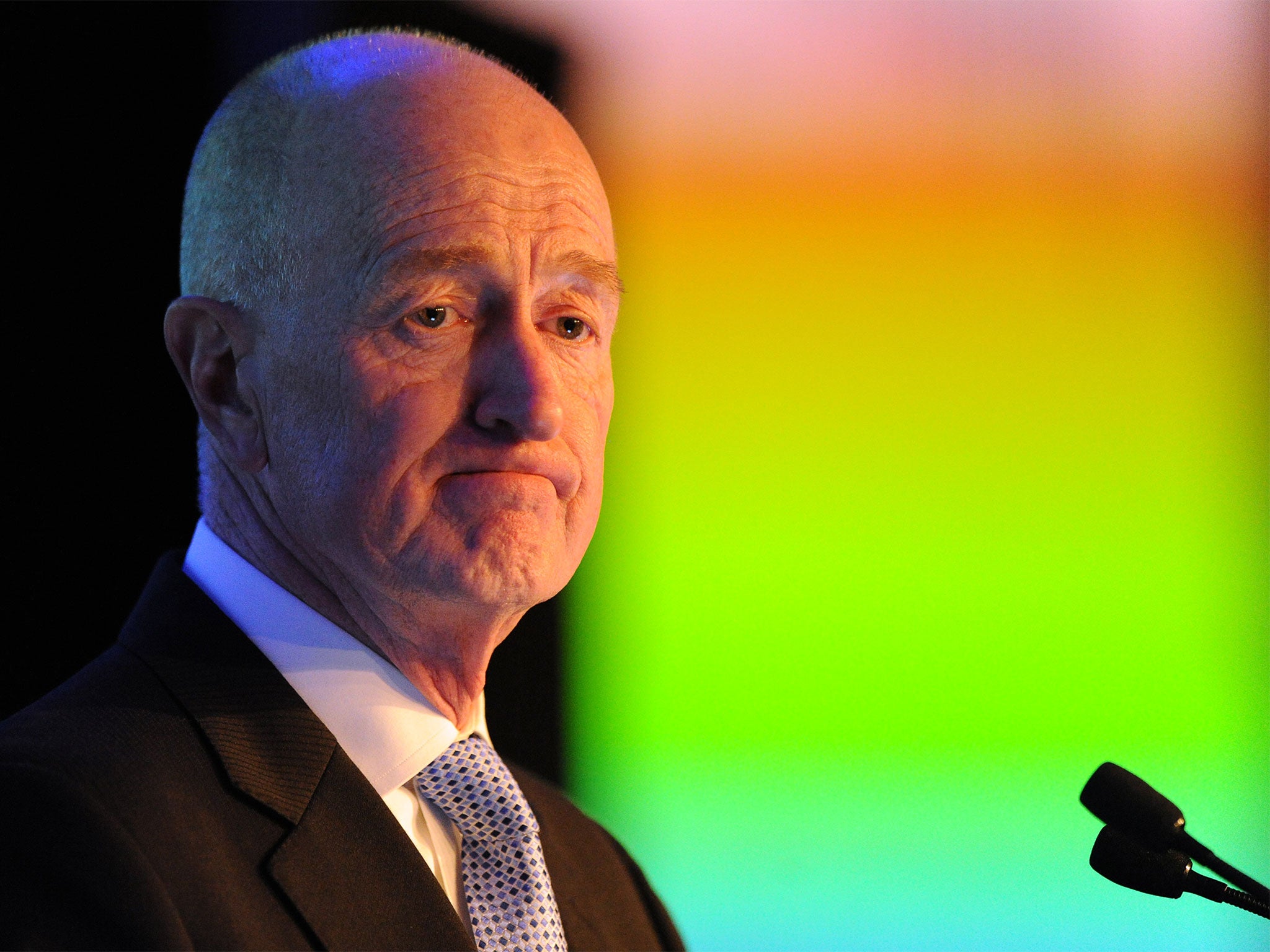Australian currency falls as it cuts interest rate to record low
Economists suprised by move to jolt economy

Australia's central bank cut its benchmark interest rate to a record low of 2.25 per cent in an attempt to jolt an economy weighed down by falling commodity prices.
The Reserve Bank of Australia's quarter percentage point rate cut at a monthly board meeting was its first since August 2013 and came as a surprise to many economists, who expected the bank to hold off on lowering the rate until later in the year.
The news shook the Australian dollar which dropped 1.8 per cent. The stock market was boosted, with the S&P/ASX 200 up 1.3 per cent.
In a statement, the central bank's governor Glenn Stevens pointed out that commodity prices have continued to decline, "in some cases sharply," particularly oil.
The bank also said that while the U.S. economy had strengthened, European and Japanese economies were weaker than expected, and forecasts for global growth this year were moderate.
"In Australia the available information suggests that growth is continuing at a below-trend pace, with domestic demand growth overall quite weak," Stevens said. The fall in oil prices would offer "significant support" to consumer spending but that is partly offset by weakening growth in incomes, he said.
"The economy is likely to be operating with a degree of spare capacity for some time yet," he said.
Treasurer Joe Hockey dubbed the rate cut good news that would bolster the country's economy.
"It is going to help to create more jobs because business is going to be able to pay less for their debt, as consumers should pay less for their debt and as people with a mortgage should pay less for their debt," he told reporters in Canberra, the nation's capital.
Stevens has repeatedly stressed that the Australian dollar is too high, despite the currency plummeting in recent weeks to around 77 U.S. cents, the lowest level since the global financial crisis. The Australian dollar reached an all-time high of $1.10 in 2011.
In his statement Tuesday, Stevens acknowledged the Australian dollar had declined noticeably, but said it remains above most estimates of its fundamental value. "A lower exchange rate is likely to be needed to achieve balanced growth in the economy," he said.
Spiros Papadopoulos, senior economist at National Australia Bank, suspects the bank will cut the rate again later this year, though not at its next meeting.
"The combination of weak growth, further increases in unemployment and a very subdued inflation outlook has really given them that room to maneuver," he said.
AP
Subscribe to Independent Premium to bookmark this article
Want to bookmark your favourite articles and stories to read or reference later? Start your Independent Premium subscription today.

Join our commenting forum
Join thought-provoking conversations, follow other Independent readers and see their replies